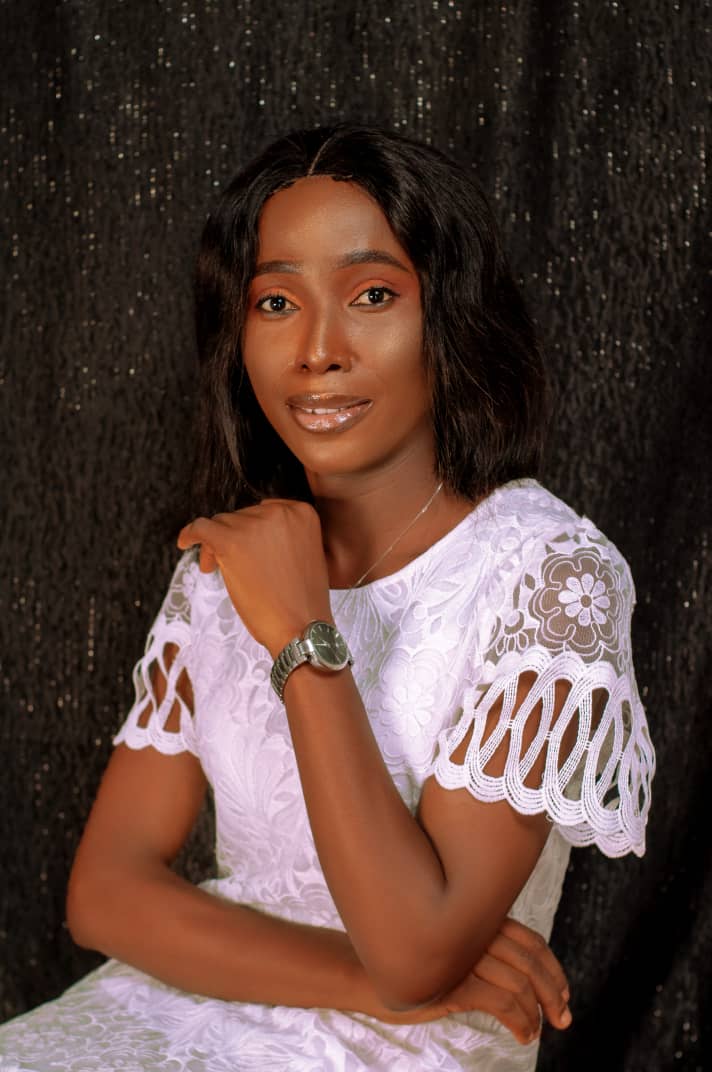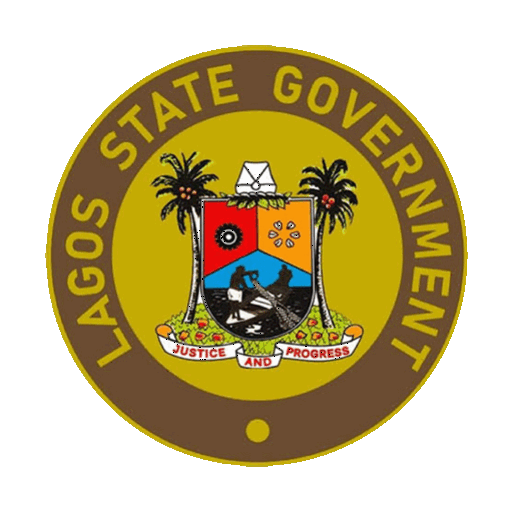
Ruth Oladoja is Redesigning Interiors into Stylish, Eco-Friendly Masterpieces.
From a value instilled by her mother to a thriving profession, Ruth Oladoja, CEO of Royalty Recycling Hub, is transforming waste into extraordinary design. What started as a personal commitment to sustainability has blossomed into a business that turns discarded materials like tires, PET bottles, and wooden pallets into functional art. Through creative upcycling, she’s reimagining eco-friendly furniture and décor that not only beautifies spaces but also promotes environmental stewardship.
In this interview, Ruth shares the inspiring story behind Royalty Recycling Hub, detailing how childhood experiences with upcycling led her to start her business. She discusses her passion for sustainability, her most memorable creations, and her vision for a greener future for Nigeria. With each project, Royalty Recycling Hub is not just creating beautiful interiors, it’s also building a sustainable tomorrow.
Read on as Ruth talks about the challenges, rewards, and future plans for her growing eco-conscious enterprise, and how her work is contributing to the circular economy movement.
1. Can you tell us what inspired you to start Royalty Recycling Hub and how your personal journey led you into the recycling industry?
My Journey to Royalty Recycling Hub: Growing up, my mother instilled in me the value of reusing and recycling, particularly with PET bottles and plastic bags. Although I wasn’t fond of storing waste, I discovered creative ways to upcycle them into functional items like flower vases, piggy banks, and containers.
The Birth of Royalty Recycling Hub: During my third year at Lagos State University, I participated in the Ready Set Work program under the Lagos State Government. Witnessing the massive waste generation from daily meals sparked an idea. I recalled my childhood experiences with upcycling and decided to turn it into a business. With the help of my friends, Olaleye Valentine and Adeniyi Rebecca, we began collecting PET bottles, upcycling them into products like pencil containers, dust brooms, and soap dispensers, and selling them to our colleagues. The revenue generated helped us sustain ourselves as students.
From Humble Beginnings to Registration: With minimal capital required to start, our small venture flourished. By 2024, Royalty Recycling Hub was officially registered with the Corporate Affairs Commission, marking a significant milestone. Today, our dynamic business offers waste upcycling services and manufactures eco-friendly furniture and interiors, driven by my passion for sustainability and creativity.
2. What does sustainability mean to you, and how does Royalty Recycling Hub reflect that in its everyday operations?
As an individual, I believe sustainability is embracing practices. either structured or unstructured, that minimize environmental pollution while promoting eco-friendly products.
Royalty Recycling Hub embodies sustainability through local sourcing of eco-friendly materials, waste reduction, the use of battery-powered tools, durable product design, low-VOC (Volatile Organic Compound) finishes, operating a take-back policy, and minimizing environmental impact through efficient production processes.
3. Your brand designs eco-friendly furniture and unique décor pieces. What materials do you typically work with, and how do you source them?
We work with consumer-used tires and PET bottles, old pallets, and recycled boards. We source them from vulcanizers, PET bottle suppliers, restaurants close to our business locations, and sawmills.
4. How do you combine creativity with sustainability when crafting your furniture and aesthetic décor items?
The key word in upcycling is creativity. From research, it has been observed that customers pay for the value they get. So, we do a lot of research and prototyping with discarded tires and PET bottles, turning them into bespoke, functional pieces. We select eco-friendly and reclaimed wood to support the durability of our furnishing products, and we infuse pieces with cultural significance and longevity.
5. Can you share a favorite or most memorable product you’ve created and what made it special?
A baby roller-seater. I wanted to gift my pastor’s newborn baby, and thought of how to make something from a tire. That’s when I arrived at the idea of creating a baby roller-seater.
6. You also manage upcycling DIY projects. Can you walk us through what a typical upcycling workshop or consultation looks like?
We specialize in facilitating creative and sustainable upcycling experiences for various organizations and individuals.
For Workshops:
- We collaborate with social organizations and academic institutions to deliver engaging upcycling sessions.
- Participants learn upcycling principles, explore materials, and create unique DIY projects.
- We provide necessary materials, facilitate the workshop, and ensure a smooth experience.
- Depending on the organizations we partner with, products can be commercialized and sold.
Consultations:
- Tailored guidance for young entrepreneurs, organizations, or community groups interested in waste collection, upcycling, or environmental projects.
- We discuss goals, assess materials, and offer customized advice to develop a personalized upcycling plan.
Our Approach:
Empowering organizations and individuals to create environmentally conscious pieces that reflect their values fosters creativity, sustainability, and innovation while reducing waste and promoting eco-friendly practices. By partnering with us, individuals and groups gain the knowledge, skills, and inspiration to make a positive impact on the environment.
7. How has your collaboration with interior designers, especially in landscape designing, expanded your impact in the eco-space?
Our partnership with interior designers, particularly in landscape designing, has significantly broadened our eco-friendly footprint. A notable project that stands out is our collaboration with primary schools to create vibrant outdoor spaces for children. This initiative has not only beautified these spaces but also served as an educational tool, integrating sustainability into the academic environment. During Earth Day 2025, we signed a petition raised by ClimateHub.org to include waste recycling in the school curriculum. What an amazing initiative!
We’re excited to expand this initiative to more schools, the hospitality sector, estates, and communities, further amplifying our impact in the eco-space. Through continued collaboration with interior designers, we aim to create a lasting legacy of sustainability and environmental awareness.
8. What kind of clients or communities have benefited the most from your waste management consultations?
- Social organizations
- Schools
- Youth clubs or forums
9. What has been the most rewarding and the most challenging part of running a sustainability-focused business in Nigeria?
Most Rewarding:
- Developing creative solutions to Nigeria’s unique environmental challenges.
- Positive Environmental Impact: Seeing the tangible difference our business makes in reducing waste and promoting sustainability in Nigeria.
- Community Engagement: Witnessing people come together to support eco-friendly initiatives and adopt sustainable practices.
Most Challenging:
- Overcoming resistance to new, sustainable practices and products.
- Securing consistent funding and support for sustainability-focused initiatives.
Despite these challenges, we’re driven by our passion for sustainability and committed to making a lasting impact in Nigeria.
10. Where do you see Royalty Recycling Hub in the next five years, and what impact do you hope to make on the circular economy?
In the next five years, Royalty Recycling Hub aims to:
- Upscale and penetrate new markets, taking a lead in driving sustainability into the furniture industry of Nigeria.
- Develop a wider range of eco-friendly products.
- Collaborate with more stakeholders: businesses associated with furnishing items and interior designers, governmental and non-governmental bodies that support the circular economy.
Impact on Circular Economy:
We hope to make a significant impact by:
- Minimizing waste sent to landfills.
- Promoting sustainable furniture-making: Encouraging eco-friendly products and practices.
- Creating economic opportunities, such as job creation for the unskilled.
- Fostering a culture of sustainability and environmental stewardship.
By achieving these goals, Royalty Recycling Hub can contribute to a more circular and sustainable economy in Nigeria.
11. If given the opportunity to scale, what kind of support or investment would take Royalty Recycling Hub to the next level, and what impact would that growth have on the environment and local communities?
To scale Royalty Eco Furnishings, we would need to:
1. Access financial support (grants, investors).
2. Technological advancements: 3D printing, Virtual Reality (VR), Internet of Things (IoT), quality control software.
3. Capacity building (training, infrastructure).
4. Expand into new geographical locations.
This growth would lead to:
- Reduced waste.
- A go-to market for eco-friendly products.
- Job creation.
- Improved production processes.
- Enhanced environmental awareness, etc.


